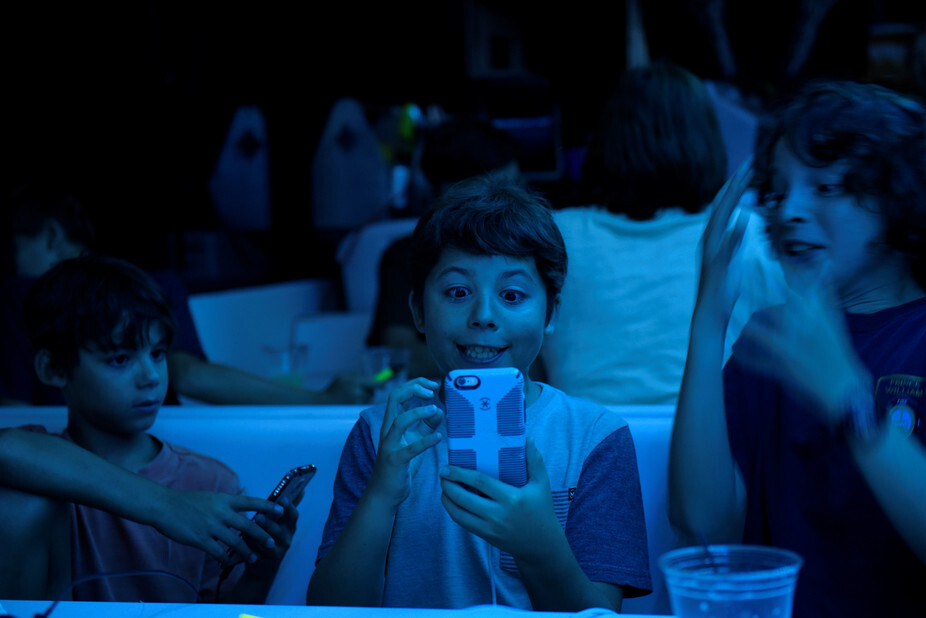As the summer holidays draw near in many parts of the world, parents shouldn’t be surprised if kids choose to fill their days with technology. After all, teens and tweens are now spending more hours on their devices – iPads, phones and computers – than they are asleep.
Anxious parents will point out how bad this technology obsession is for young people. Too much screen time has been linked to falling grades, impeded social interaction and a lack of exercise.
But there’s a flip side. Several studies support technology’s positive influence on young users. It offers exciting opportunities for learning and can strengthen interpersonal relationships.
In the same way that some food is healthy and some has no nutritional benefits, some apps are low in mental fibre. Based on my own research into how students learn with technology, here’s a guide to getting rid of “junk” apps and ensuring your tweens and teens develop healthy tech habits both in term time and during the school holidays.
From passive to active
The key lies in shifting kids from using apps that make them passive content consumers to those where they are active content producers. Encouraging the use of activating apps can help children to develop a wide range of 21st century skills like collaboration, creativity, critical thinking, and problem solving.
Before I look at apps that will actively engage kids during school holidays, here are the “apps” you should immediately delete from their lives.
- APPrehension: feelings of inadequacy caused by social media
- APProval: the dangerous pursuit of digital validation through “likes” and “followers”
- APathy: the increasing desire to passively consume content
- APartness: the isolating danger that technology can cause
Once these “apps” are deleted, here’s a selection of apps that will not only engage your kids, but help them develop important skills. I’ve selected a few iOS, Android, and Web-based apps (accessible through a browser on any device). The full list is available here. I’ve grouped these according to the skills they will develop.
Activating apps
Curation: Curation apps help kids to develop key skills such as reading, categorising and organising.
- Pinterest (iOS, Android, Web): This popular visual pinboard is great for creating collections of images. How about a pinboard of Disney characters?
- Learning Lab (Web): This site, created by the Smithsonian museum, allows kids to curate museum artefacts.
- List.ly (Web): Create fun, shareable lists of websites, videos and more from the web. How about starting with a list of all of the places you want to visit?
Conversation: There’s a shift from learning through content consumption to learning through conversation around content in online spaces. Conversation-based apps provide opportunities to debate, discuss and enrich relationships.
- Maily (iOS/Android): A parent-controlled app that allows kids to create fun messages with drawings and text.
- Playkids Talk (Android): This instant messaging app is for primary school kids. With parental permission kids can send instant messages including photos, voice recordings and graphics to one another.
Correction: Research shows that one of the most effective ways to learn is through mistakes. Technology allows us to easily experiment, make mistakes and learn through correction.
- Scribblenauts (iOS/Android): Lets kids bring any object to life simply by typing its name. These objects are then used to solve fun problems.
- Kahoot! (Web/iOS/Android): A gamified take on quizzes that makes learning – and mistakes – lots of fun. You can create your own quiz or try one of the thousands already created. This is a great way to get a group of kids (and adults) learning and laughing together.
Creation: Creating content develops key skills such as logic, creative thinking and problem solving.
- Book Creator (Android and iOS) allows kids to create their own books using their own photos, videos and so on. The final book can even be published to the Google Play store or iBooks.
- Monster Physics (iOS): Lets kids build working contraptions using a range of parts like wheels, rockets and magnets. Once the contraption is built kids can test it to see how it works.
- Scratch (Web, iOS, Android): One of the most powerful ways to teach kids creative thinking and logic is through programming. MIT’s Scratch environment is designed to let kids learn to programme in an easy, fun way.
Chaos: Learning to make sense of too much information, missing information, and conflicting information is a skill children increasingly need to develop in our content-excessive world.
- Word clouds (Web) are a great way to distil large amounts of text into fascinating visual representations. Worditout allows kids to easily create a word cloud from any piece of text. How about creating a word cloud of the news, or a famous speech?
- Mindmaps are useful to help organise your thinking. Corkulous (iOSprovides a fun corkboard spin on this concept for kids.
- Sometimes kids can be overwhelmed or bored by content but always enjoy cartoons. Rather than reading or watching them, let your kids create cartoons with toondoo.com or animations with Powtoon.com. How about asking them to create a cartoon that summarises their year?
Keeping track
No matter which apps your kids choose, it’s important to keep track of their use. Research suggests that screen time should be limited, whether young users are consuming “junk” apps or learning while they swipe. OurPact is a great tool to automate this process. It allows parents to set usage schedules or turn off a device at any time.
- Senior Lecturer in Education & Technology, University of KwaZulu-Natal
- This article first appeared on The Conversation
